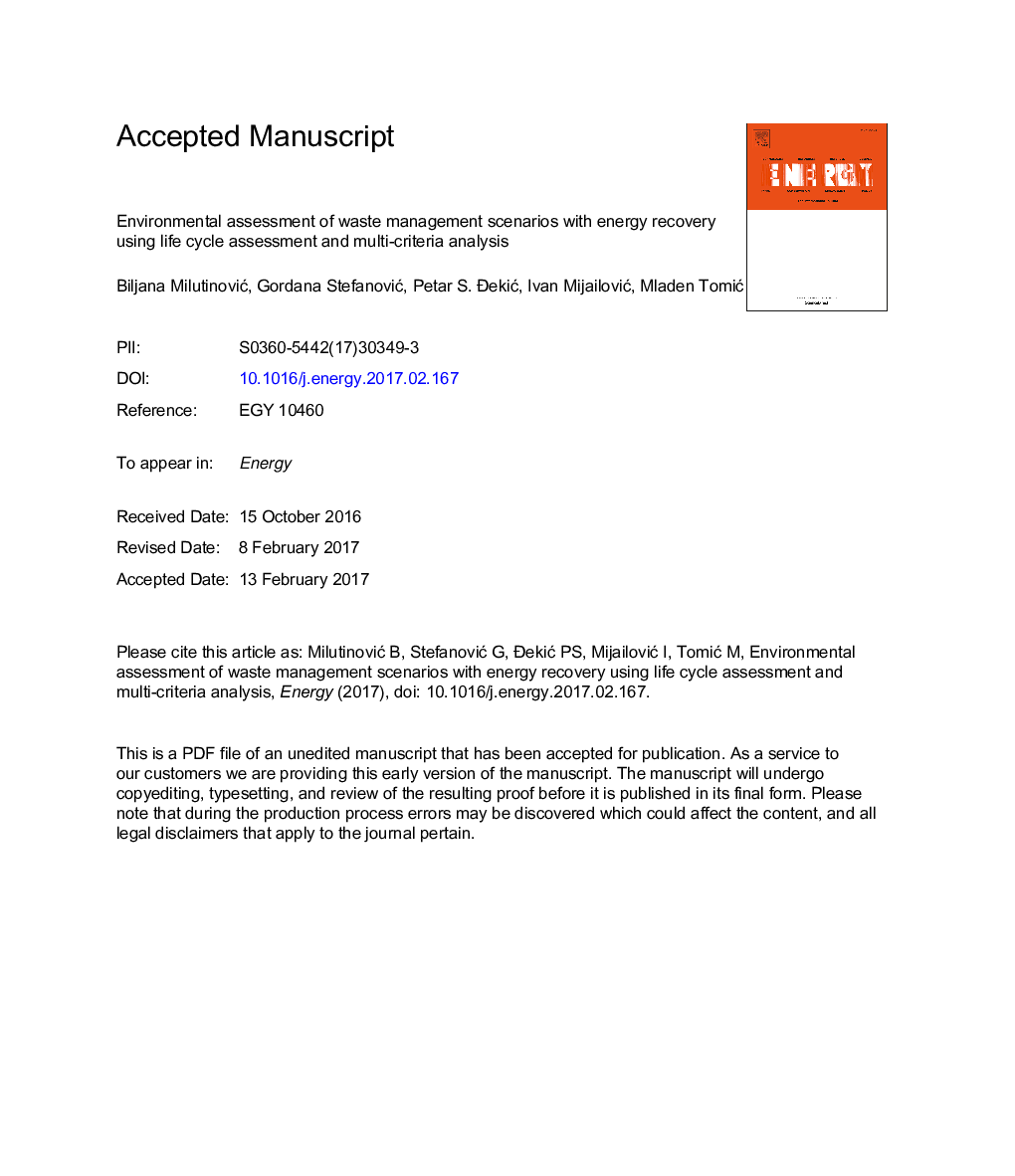| Article ID | Journal | Published Year | Pages | File Type |
|---|---|---|---|---|
| 8072803 | Energy | 2017 | 20 Pages |
Abstract
Before design and implementation of waste management system, the sustainability assessment must be done, but specially must be considered their impact on the environment. Environmental impact should be considered throughout the life cycle of waste. In this paper combination of life cycle assessment and multi-criteria analysis, was applied to assess environmental impact of different waste management scenarios with energy recovery in City of NiÅ¡ as a case study. In the first step, the Life Cycle Assessment is used to assess environmental impact of developed scenarios and to calculate values of impact categories (indicators). In the next step the Analytic Hierarchy Process is used to rank developed scenarios according to the goal: selection of the scenario with minimum negative environmental impact according to the indicators. Four scenarios were taken in to consideration: “business as usual” scenario i.e. landfilling without energy recovery, landfilling with biogas combustion to generate electricity and heat; incineration of waste with energy production, anaerobic digestion with biogas utilization for energy generation. The obtained results show that the Scenario with minimum negative environmental impact in the case study City of NiÅ¡ is an anaerobic digestion with biogas utilization for energy generation.
Related Topics
Physical Sciences and Engineering
Energy
Energy (General)
Authors
Biljana MilutinoviÄ, Gordana StefanoviÄ, Petar S. ÄekiÄ, Ivan MijailoviÄ, Mladen TomiÄ,
